There are a few key tricks to keeping that midsummer gardening going full tilt! By now, you should have harvested some goodies. Here is a basic “to do” list to help you keep your vegetable plants healthy, finish up that harvest strong, and start new plantings for fall.
Growing a garden isn’t just about getting plants started—it also involves tending to your plants and giving them the TLC that they need to be successful and get across that finish line! Here are my tips on summer plant care …
Don’t Let Weeds Take Over
Weeding and thinning should be at the top of your to-do list. Plants can’t grow well if they are being crowded out, and weeds are especially tough competitors.
- Take a half hour early each morning while it is still cool outside to pull any weeds that have invaded your garden.
- You can attack it methodically row by row, or go for the big guys first and work your way down to the smaller offenders.
- If you keep at it, eventually there will be few or no weeds left, at which point you can easily keep up with newly emerging ones.
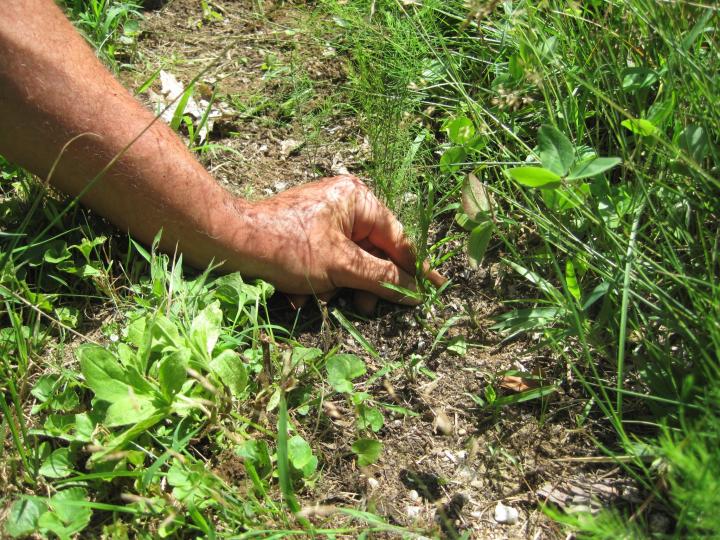
Thin Out Plantings
If you started some early or mid-summer plantings of beets or carrots, it’s time to give them room to form their fat roots.
- I usually try for a spacing of two finger-widths between plants.
- Eat any tiny carrots that have formed. They are exceptionally sweet and good in a salad, and the beet greens are delicious and full of nutrients.
Fertilize for a Boost!
Plants, like people, need to not only drink water but also eat for nourishment! By now, their soil may be getting depleted of nutrients.
Give plants a mid-season feeding by side-dressing with compost or aged manure, or give them a drink of liquid fish emulsion fertilizer or manure tea when you water.
Watering is Critical
Watering is critical in mid- and late summer, when the heat is on high. Put out a rain gauge to determine just how much water you are getting from those thunderstorms: one to two inches a week is optimum. If you are not getting that much in rainfall, it is time to do some deep watering yourself.
- Dig down about 6 inches and see how dry the soil is at that level. This is where most of your plants roots are and this is where the water needs to be.
- Sprinkling the leaves is not going to be very beneficial. Soaker hoses are best; otherwise you will have to spend some time watering around each plant.
- Water gently to allow the water to soak in and not run off. (See our article about Watering.)
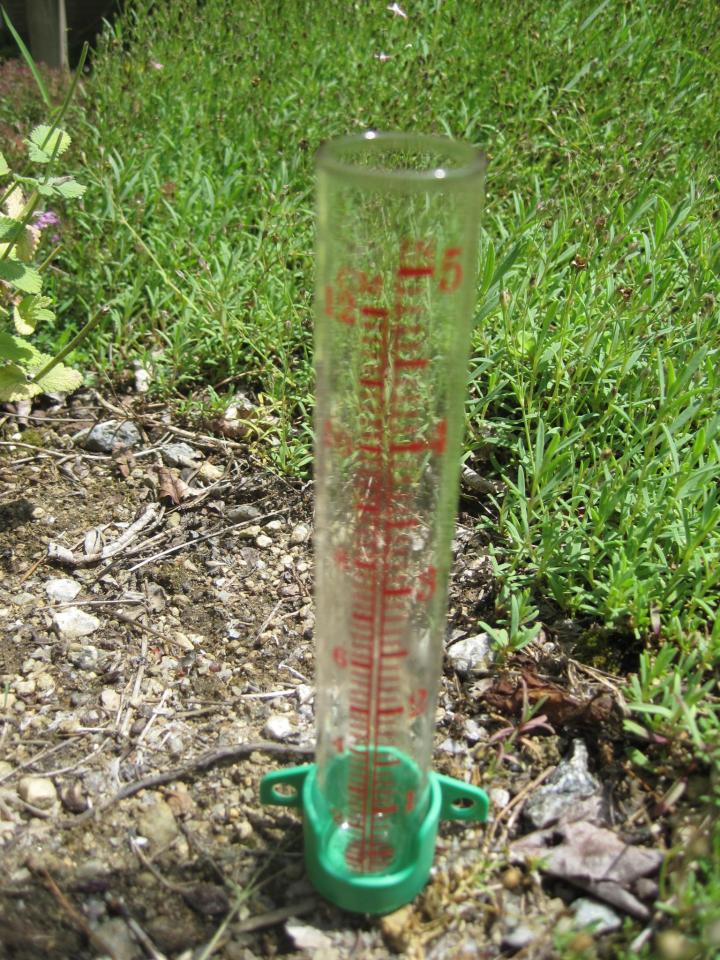
A simple rain gauge will take some of the guesswork out of watering.
- To reduce the amount you need to water, consider mulching around your plants, which will help to keep down the weeds and keep soil moisture from evaporating too quickly. Straw, grass clippings, pine needles, shredded leaves, and even newspaper will help to suppress weeds. (See our article about Mulch.)
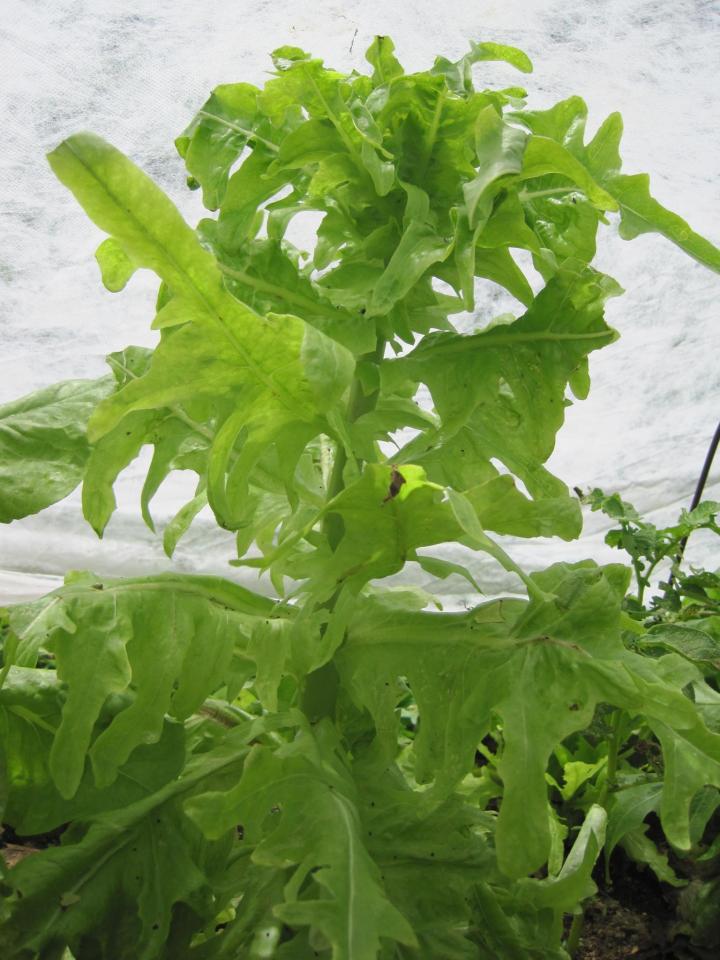
Time to replace bolted heads of bitter lettuce with fresh new plantings.
Plant New Vegetables
Planting a new round of crops will keep your garden productive into fall. Remove any spring crops that have gone to that big farm in the sky and plant some new vegetables in that space.
- Pay close attention to the first fall frost date for your area if you want to replant with tender, warm-weather crops like beans or cucumbers.
- Otherwise, stick to frost-hardy fall crops such as broccoli, kale, bok choy, carrots, beets, radishes, turnips, spinach, and peas.
- Lettuce doesn’t like to germinate in hot soil, so start the seeds inside where it is cooler and then transplant them outside under the shade of taller plants to keep the lettuce from bolting.
See the Almanac’s new chart of Last Planting Dates by Zip Code or Postal Code.
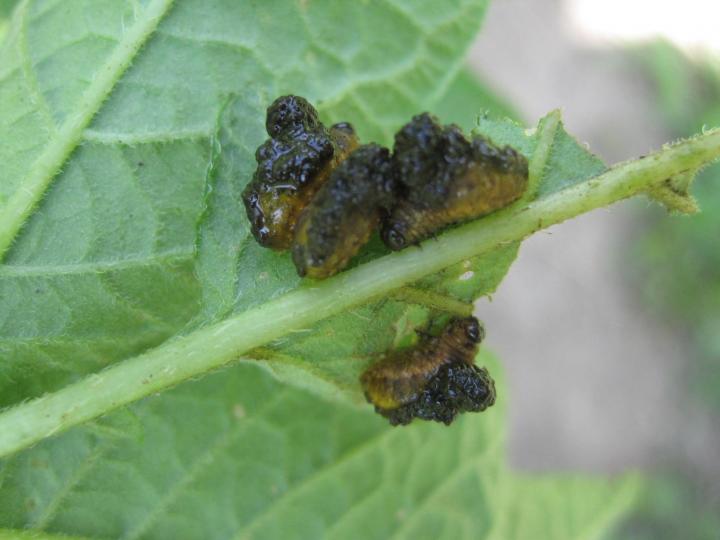
Potato bug larvae are voracious eaters and carry their own excrement on their backs! Yuck!
Scout for Pests
Scouting for insect pests (the unwanted visitors) frequently will help you keep ahead of any population explosions of garden destroyers.
- Be sure to check the undersides of the leaves, where most pests like to hide and lay their eggs.
- Many bugs like to sleep in, so you can often catch them in the morning when they are still groggy.
- Knock them into a bucket of soapy water to their sudsy demise.
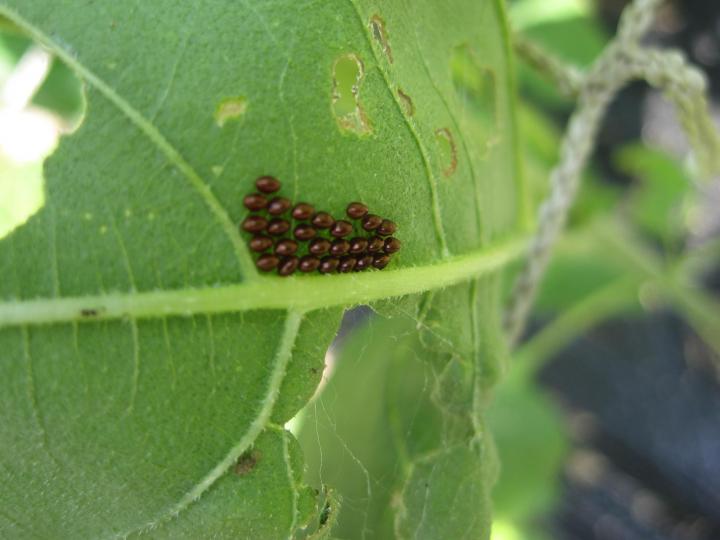
Squash bugs not only lay eggs on squash plants, but also on cucumbers, melons, and even these sunflowers.
- Staking will help keep fruits up off the ground, making them less susceptible to soil-borne diseases and easier to pick.
Harvest Often!
Harvesting often will keep your plants flowering and producing more fruit.
- Beans especially benefit from frequent picking.
- Harvest tomatoes as they ripen for the best flavor.
- Pick zucchini and cucumbers while they are still small to avoid dealing with huge seedy fruits.
If you find that you are inundated with more produce than you can handle, please pass some of the bounty along to friends and neighbors or your local food pantry.
See more tips on When to Harvest Fruit and Vegetables.
What About Flowers and Ornamentals?
While you’re at it, don’t forget that ornamentals need some attention, too.
- Add deadheading, weeding, staking tall floppy plants, deep watering, fertilizing, and renewing mulch in the flower beds to your to-do list. See 4 good reasons to deadhead flowers.
- Mowing and edging around garden beds will keep the yard looking spiffy.
- Any plants growing in containers need special care since they dry out quickly in hot weather. Frequent watering washes nutrients out of the soil so use a liquid fertilizer when you water or scratch in a slow-release fertilizer to keep your container plants growing and hanging baskets blooming.
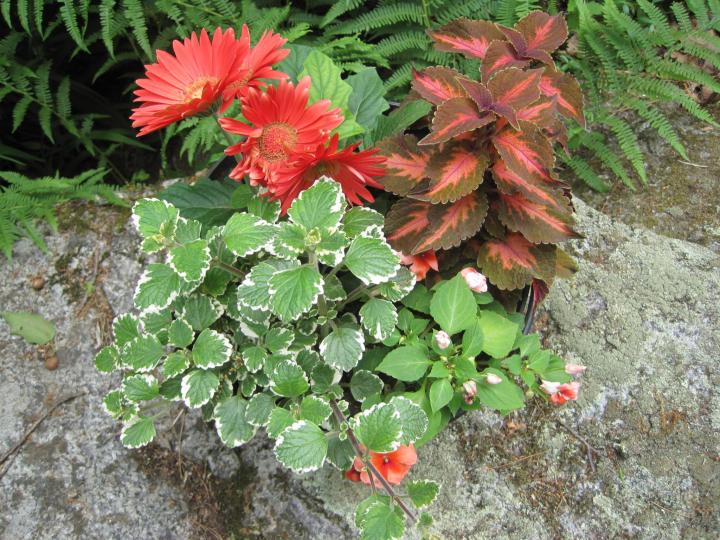
Keep container plantings well watered and fertilized and they will last all summer long.
Practice Gardening Self-Care
Finally, take care of yourself as well. Work outside during the cooler hours of the day to survive the heat and humidity and make sure you drink plenty of water, too. (See our article about Gardening in the Heat.) If you’ll be doing a lot of weeding, put down a padded cushion to kneel on or bring a small stool along.
There is a lot to keep up with, but it is well worth it when you get to proudly enjoy the fruits (and vegetables) of your labor!
















